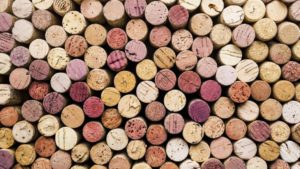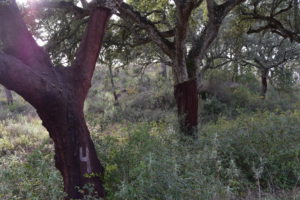‘Portugal’s best-kept secret’
Despite the fact that Portugal is European champion in bicycle production, as to physical exercise the country is at the very bottom of the league table.

The Portuguese exercise the least in Europe. Almost three quarter (73%) say they never exercise or do any kind of sport – against 45% of the Europeans – according to the Eurobarometer of Sport and Physical Activity.
At the other extreme are the Finns with over 70% admitting to exercising or playing sports at least once a week, followed by Luxembourg (63%) and the Netherlands (60%).

This low physical activity contrasts heavily with the country’s bicycle production. In 2021, 13.5 million bicycles were produced in the European Union, with Portugal leading the ranking (2.9 million). Other main bicycle producers in the EU are Romania (2.5 million) and Italy (1.9 million).
The international news channel BBC highlighted Portugal as being ‘Europe’s best-kept secret for cycling’. The bicycle industry – mainly producing for export – currently includes around 60 factories with almost 8,000 people employed. One of the advantages of domestic production is the possibility of offering EU customers much shorter supply chains than competing Asian manufacturers.

The pandemic has been the main driving force behind the industry’s continued growth. ‘Covid has brought new opportunities to the sector as it ended up encouraging healthier lifestyles across Europe, explains Gil Nadais, secretary-general of Portugal Bike Value, who expects the industry to grow between 20% and 30% this year.

Even with only a tiny fraction of the urban population using a bicycle for commuting, Fernando Chicarini, the owner of Lisbon’s oldest bicycle shop – Armazéns Airaf, founded in 1951 – is optimistic as his sales have soared 40% since the start of the pandemic.

However, one of the main problems in the country is that road safety in urban centers continues to be bad and the percentage of road fatalities in Portugal particularly high when compared to other European countries. A situation that has not significantly improved in recent years.

Those who pedal are mostly men of working age, able to face the busy car traffic. The number of women though is important because they are the ones who give the most attention to safety issues. In Lisbon, women represent a quarter of those who cycle on a daily basis, which corresponds to the EU average.

So, the challenge for the coming years will be to effectively get more Portuguese on a bike. Cycling – in addition to promoting general well-being – helps to reduce car use and air pollution. Moreover, regular cycling (45 km a week) almost halves the incidence of heart disease and cancer.
Enjoy the week Boa semana (pic Público/Sapo)

 Portugal is de belangrijkste producent van kurk in de wereld en exporteert sinds kort zelfs meer kurk dan wijn. Hoewel het merendeel van de productie naar champagne – en wijnproducerende landen gaat, wordt kurk ook gebruikt voor vloertegels, isolatie en decoratie. Recent is zelfs een ecologische verantwoorde zeep van kurk op de markt gekomen.
Portugal is de belangrijkste producent van kurk in de wereld en exporteert sinds kort zelfs meer kurk dan wijn. Hoewel het merendeel van de productie naar champagne – en wijnproducerende landen gaat, wordt kurk ook gebruikt voor vloertegels, isolatie en decoratie. Recent is zelfs een ecologische verantwoorde zeep van kurk op de markt gekomen. Kurk wordt gewonnen uit schors van de kurkeik, die vooral in de droge, zuidelijke Alentejo provincie uitstekend gedijt. De bomen worden ongeveer 200 jaar oud en kunnen vanaf de leeftijd van 25 jaar elke 9 jaar worden geschild. In 2011 werd de kurkeik uitgeroepen tot “boom des vaderlands.”
Kurk wordt gewonnen uit schors van de kurkeik, die vooral in de droge, zuidelijke Alentejo provincie uitstekend gedijt. De bomen worden ongeveer 200 jaar oud en kunnen vanaf de leeftijd van 25 jaar elke 9 jaar worden geschild. In 2011 werd de kurkeik uitgeroepen tot “boom des vaderlands.” ‘Er zijn dingen die nooit met woorden verklaard kunnen worden’
‘Er zijn dingen die nooit met woorden verklaard kunnen worden’